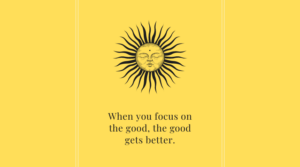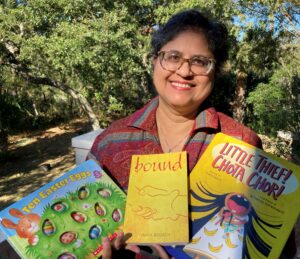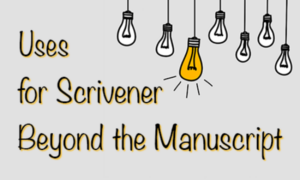business
Some of my friends know the whole story, but not many do. I’ve kept details to myself from the start, including the size of my first book deal (major, 2-book) and the expectations of my agent and acquiring editor (also major). In Germany, a thrilling foreign auction fueled all of our hopes. Then the 2008 crash obliterated the global economy, and aside from one other sale that was all the foreign publishers wrote. The splashy Big Five Publisher luncheon that had been scheduled in honor of the book was cancelled (though it had always felt surreal that it had ever been planned). It became clear at some point that my marketing team’s tone had changed—that somewhere along the way we’d moved from genuine excitement to the crossing of fingers to the bracing for a harsh reality, which I now know was probably based upon a clear view of preorders. The book released, but it far from sounded the bell, and then the trickle of disappointment everyone felt turned into a wave.
My debut, the one I’d worked on for ~five years, was a sales dud.
I spoke about it all with a trusted author-friend, who advised me to fight, question, push—get more PR, something—because the numbers were maddeningly unreal to her when I shared them. I purchased ads and a book tour, and wrote more articles, but nothing seemed to move the needle. And I did speak with folks at my publishing house, to see what–if anything–might be done.
Then someone in power delivered a few ominous words that landed like a threat—about the sales threshold that needed to be met for a book to move from hardcover to paperback, about how my book would be published in paperback despite not meeting that threshold only because of the size of my publisher’s debt over my book. About how this was the sort of scenario that killed careers, but wasn’t I “lucky” that I had a two-book deal in order to attempt a recovery.
I did not feel lucky. I felt petrified. That feeling amplified when my editor left, my imprint was shuttered, and I was inherited by another imprint–one that was not invested in me or my story. I came to believe, and not without reason, that I was viewed as a tax write-off.
Might not surprise you to know that I struggled to write what became my second novel. I battled block, wondered if I’d fail at finishing and have to pay back my advance, and had a great deal of doubt about the worthiness of both my story and myself as an author.
But I did finish it–a story about the pursuit of an impossible goal while maintaining hope. It took some astute book clubs for me to recognize the irony of what my subconscious did there.
The Moon Sisters was published in hard cover in 2014. It was awarded starred reviews and close to zero marketing dollars. It did not sell well out of the gate, and so a few weeks after it was released my publisher decided not to publish it in paperback. The End.
I don’t have anything to be ashamed of, right? I did my job and did it well, said my (genuinely wonderful, 4th) editor, delivering the news. […]
Read MoreI believe most of us here focus our writing efforts on long-form fiction and nonfiction, but Scrivener is also great for creating and organizing shorter works and non-writing projects.
Here are a few ideas for getting value from Scrivener beyond your manuscripts.
Blog Posts, Newsletters, and Articles
I have one Scrivener project that contains all of my blog posts and newsletters from the last decade. They’re organized by year and month, but you could just as easily sort them by topic or website.
I use the Label field to color code them by website, which also lets me create a list of every blog post I’ve ever written for, say, Writer Unboxed with a couple of clicks. Then, once I have that list, I can easily search within it for a specific word or phrase.
You can use other fields like Keywords or Status to track things like topics, site, and submission status. Even just scanning the titles has saved me from accidentally writing a post on a topic I already covered last year.
By having all of my posts in one place, I can not only avoid embarrassing duplicates, but also quickly find an old post and use it as the basis for an updated version, or for an article.
It’s also pretty cool to instantly see that I’ve written more than 270K words in blog posts since 2011.
Storing my newsletters in the same project allows me to easily create a blog post from the public portion of my newsletter content. I also have a folder where I capture ideas for future posts and newsletters so everything’s in one place.
To get the blog post out, I just copy and paste the text into WordPress or MailChimp, or export (File>Export) the selected document to a DOCX if I need to send it to someone. You can also export to HTML, MultiMarkdown, and other formats.
Poems and Short Stories
Similar to using Scrivener for blog posts and articles, you can create a single project to hold all of your poems or short stories. Or maybe one project for each topic or series or “world.”
You’d then have the ability to move the documents around to play with the order, and compile varying combinations of files.
Public Appearances
This might not apply to everyone just yet, but if you’ve ever submitted a workshop proposal, or been asked to speak at a workshop, Scrivener can be an excellent way to track everything about that (potential) appearance.
For example, I paste in the key email(s) from the conference/group organizer so I have the details of who, what, when, where, how long, and the payment offered.
Under the section for that event, I have separate documents for
Read MoreA good writer can transform any idea into a captivating, intriguing story. In writing, masterful execution can compensate for a mediocre idea.
You couldn’t say the same about book cover design as it’s, first and foremost, a marketing tool.
A proper cover should target a book’s genre, cater to your target audience’s preferences, and intrigue the viewer. A good idea — the main pillar of an effective cover design — helps achieve that.
So
As a writer, you have two challenges:
Here at MiblArt – book cover design company, we can help you with both challenges.
If you ever struggled with a book cover idea or were unsure about the ones you have, we can provide you with ideas and consulting for free.
MiblArt team works with any fiction and nonfiction genres and has already helped dozens of authors get the covers that do their books justice.
As for the book cover design itself, we offer
Take a look at the cover examples we have recently done.
We want to help you get the book cover you’ll love. And if you need help with a book cover idea, feel free to contact us
Get cover idea or consulting for free
What’s the most challenging thing for you during the book cover design process? Share your thoughts in the comments below!
Read More- « Previous
- 1
- …
- 3
- 4
- 5














